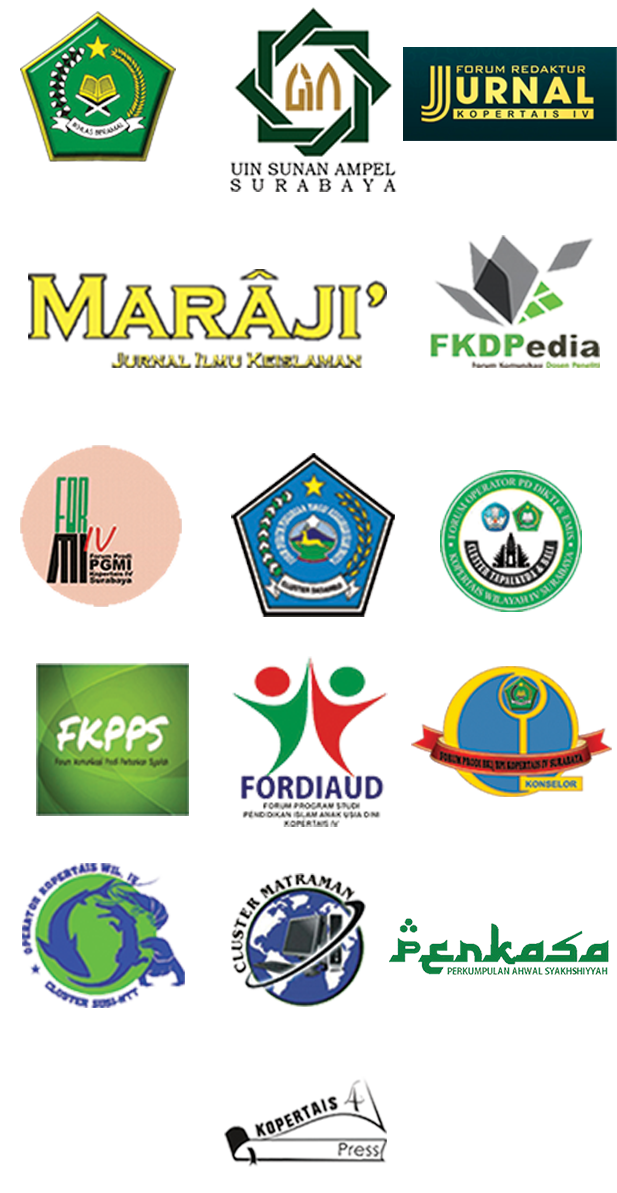Harmonizing Religious Values, Local Culture, and Productive Zakat in Improving The Economic Welfare of Msmes at The Tebuireng Boarding Social Institution (LSPT) Jombang
Abstract
The purpose of this study is to examine the impact of religious principles, local culture, and productive zakat programs on the economic well-being of micro, small, and medium enterprises (MSMEs) in Jombang. The research method entails an examination of religious principles, local culture, and field case studies. According to the findings of the study, the incorporation of religious principles offers a strong ethical foundation for MSMEs in Jombang, resulting in honest, fair, and responsible business operations. LSPT Jombang's productive zakat program, particularly the Dhuafa Mandiri program, offers mustahik with business financing and training, enhancing their economic independence. Local culture inspires MSME products, resulting in a strong local character. According to the findings of this study, the integration of religious principles, local culture, and productive zakat programs has a considerable positive impact on the economic well-being of MSMEs in Jombang. It is envisaged that by continuing to strengthen this integration and overcoming the problems that arise, MSMEs in this region will be able to thrive and make significant contributions to the local economy and community.
Downloads
References
Achmad, Willya. “Corporate Social Responsibility and Zakat: A Model of Philanthropy in the Society Era 5.0.” Jurnal Scientia 11, no. 1 (2022): 565–74. http://seaninstitute.org/infor/index.php/pendidikan/article/view/579.
Al-Bawwab, Rania Adel. “Zakat: Changing the Framework of Giving.” Islamic Economic Studies 30, no. 2 (2023): 86–103. https://doi.org/10.1108/ies-08-2021-0026.
Anisa, Yulia, and Moh Mukhsin. “The Role Of Zakat In Realizing Sustainable Development Goals (SDGs) To Increase Community Economic Income.” Jurnal Ekonomi Islam 13, no. 2 (2022): 2579–6453.
B, Husni Thamrin, and Kadarudin Kadarudin. “Local Wisdom in Business Practices in Indonesia.” Proceedings of the 3rd International Conference on Business Law and Local Wisdom in Tourism (ICBLT 2022) 1 (2023): 590–601. https://doi.org/10.2991/978-2-494069-93-0.
Chapra, Muhammad Umer. “Morality and Justice in Islamic Economics and Finance.” Morality and Justice in Islamic Economics and Finance 168 (2014): 1–278. https://doi.org/10.4337/9781783475728.
Fakhri, Jamal. “Al-Qur ’ an Perspective on the Concept of Islamicpreneurship in Economic Growth.” JASSP - Journal of Advance in Sosial Sciences and Policy 3, no. 1 (2023): 63–71.
Fauziah, Najim Nur. “Developing Cash Waqf Model as an Alternative Financing for Social Enterprises to Support Decent Work and Economic Growth in Indonesia.” Turkish Journal of Islamic Economics 8, no. Special Issue (2021): 195–217. https://doi.org/10.26414/a2759.
Sandy Gunawan, Rizal Syarief, Popong Nurhayati, Yudha Heryawan Asnawi, and Handito Hadi Joewono. “Local Wisdom Based Social Responsibility of Balinese SME to Improve Competitiveness.” Jurnal Aplikasi Bisnis Dan Manajemen 9, no. 1 (2023): 141–51. https://doi.org/10.17358/jabm.9.1.141.
Hafandi, Akhmad, and Masdar Helmy. “Creating a Social Justice Trough Zakat and Its Relevant To Poverty Alleviation: A Perspective of Abul a’La Al-Maududi.” An-Nisbah: Jurnal Ekonomi Syariah 8, no. 1 (2021): 1–31. https://doi.org/10.21274/an.v8i1.3622.
Kader, Haithem. “Human Well-Being, Morality and the Economy: An Islamic Perspective.” Islamic Economic Studies 28, no. 2 (2021): 102–23. https://doi.org/10.1108/ies-07-2020-0026.
Mawardi, Imron, Tika Widiastuti, Muhammad Ubaidillah, Al Mustofa, and Fifi Hakimi. “Analyzing the Impact of Productive Zakat on the Welfare of Zakat Recipients,” 2022. https://doi.org/10.1108/JIABR-05-2021-0145.
Mujahidin. “Socio-Economic Justice In The Quran’s Perspective.” International Journal of Economics, Business and Accounting Research (IJEBAR) 6, no. 4 (2022).
Riyadi, Aditya Hadid, Abdukadir Abdullahi Sheik Abdukad, Bandar Mohammed Saif, Hawa Ahmed Takow, and Ashurov Sharofiddin. “The Effect of Utilizing Zakat Fund on Financing Production to Achieving Social Welfare: In Indonesia as a Case Study.” Journal of Islamic Finance 10, no. 1 (2021): 019–029.
Rizal, S S, and D Akmalia. “Development of a Creative Economy Based on Local Wisdom in Empowering MSME Economic Improvement to Face the Modern Market from a Sharia Economic ….” Enrichment: Journal of … 12, no. 4 (2022).
Sa’idu, SABO Jamilu, Saleem Ibrahim Alzubi, Zaenal Khalid, Haulatu Yakubu Zakariya, and Abdullah Dalhatu. “Islamic Ethics of Trade: A Recipe for Sustainable Business Transactions in The Contemporary World.” AZKA International Journal of Zakat & Social Finance 3, no. 3 (2022): 119–32. https://doi.org/10.51377/azjaf.vol3no3.141.
SARATIAN, Eko Tama Putra, Harefan ARIEF, Yanto RAMLI, Dudi PERMANA, and SOELTON Mochamad. “Sharia Financial Inclusion As the Catalyst for the Sustainability of the Indonesian Msmes.” Iccd 4, no. 1 (2022): 237–43.
Sari, Nafizha Trie Permata, and Andriani Kusumawati. “Literature Review : The Efforts To Strengthening of Micro, Small and Medium-Sized Enterprises (MSME) in Indonesia.” Asian Journal of Management, Entrepreneurship and Social Science 2, no. 01 (2022): 98–115. https://ajmesc.com/index.php/ajmesc/article/view/52.
Setiawan, Iwan. “The Significance Of Corporate Social Responsibility In Sustainable Development.” Journal Of Law And Sustainable Development 11, no. 9 (2023): 1–23.
Setyawati, Amelia, Amelia Suggangga, Nyuherno Aris Wibowo, and Adelia Rahma. “Ability To Use Digitalization In Increasing The Competitive Advantages Of Msmes In Indonesia : Systematic Literature Review ( SLR )” 2, no. 2 (2023): 48–65.
Wutsqah, Urwatul. “Productive Zakat for Community Empowerment: An Indonesian Context.” Journal of Sharia Economics 3, no. 1 (2021): 1–17. https://doi.org/10.35896/jse.v3i1.179.
Yazbek, Firas Hasan Abu. “Takaful Insurance: A Critical Evaluation of Takaful Business in the UAE and Its Prospects for Growth.” Takaful Insurance, no. May (2018): 1–210. https://doi.org/10.14236/ewic/eva2018.78.
Copyright (c) 2024 Arif Zunaidi, Robiatul Adawiyah, Fachrial Lailatul Maghfiroh, Al Zamzami Bahrur Rizqi

This work is licensed under a Creative Commons Attribution-ShareAlike 4.0 International License.









